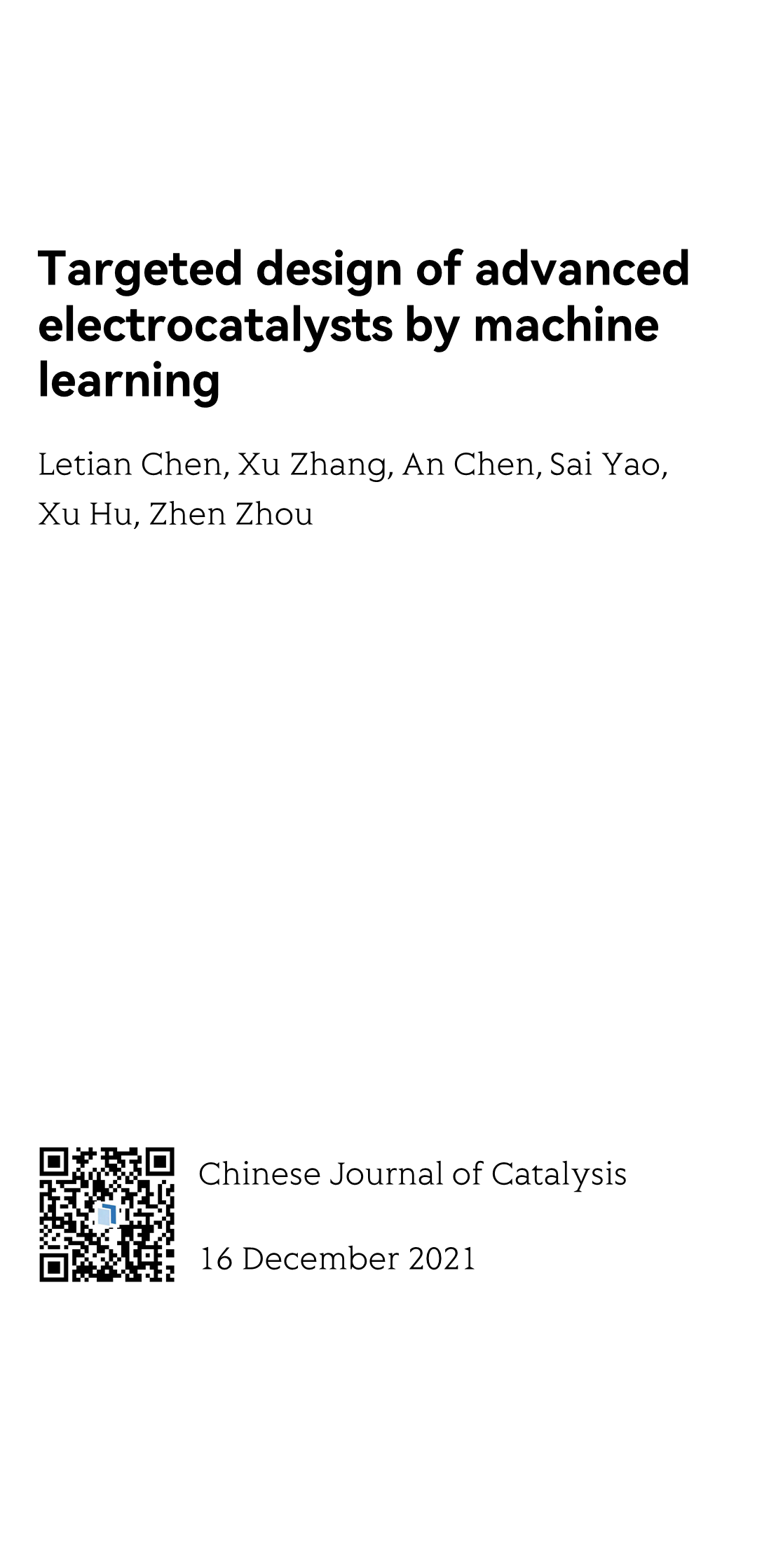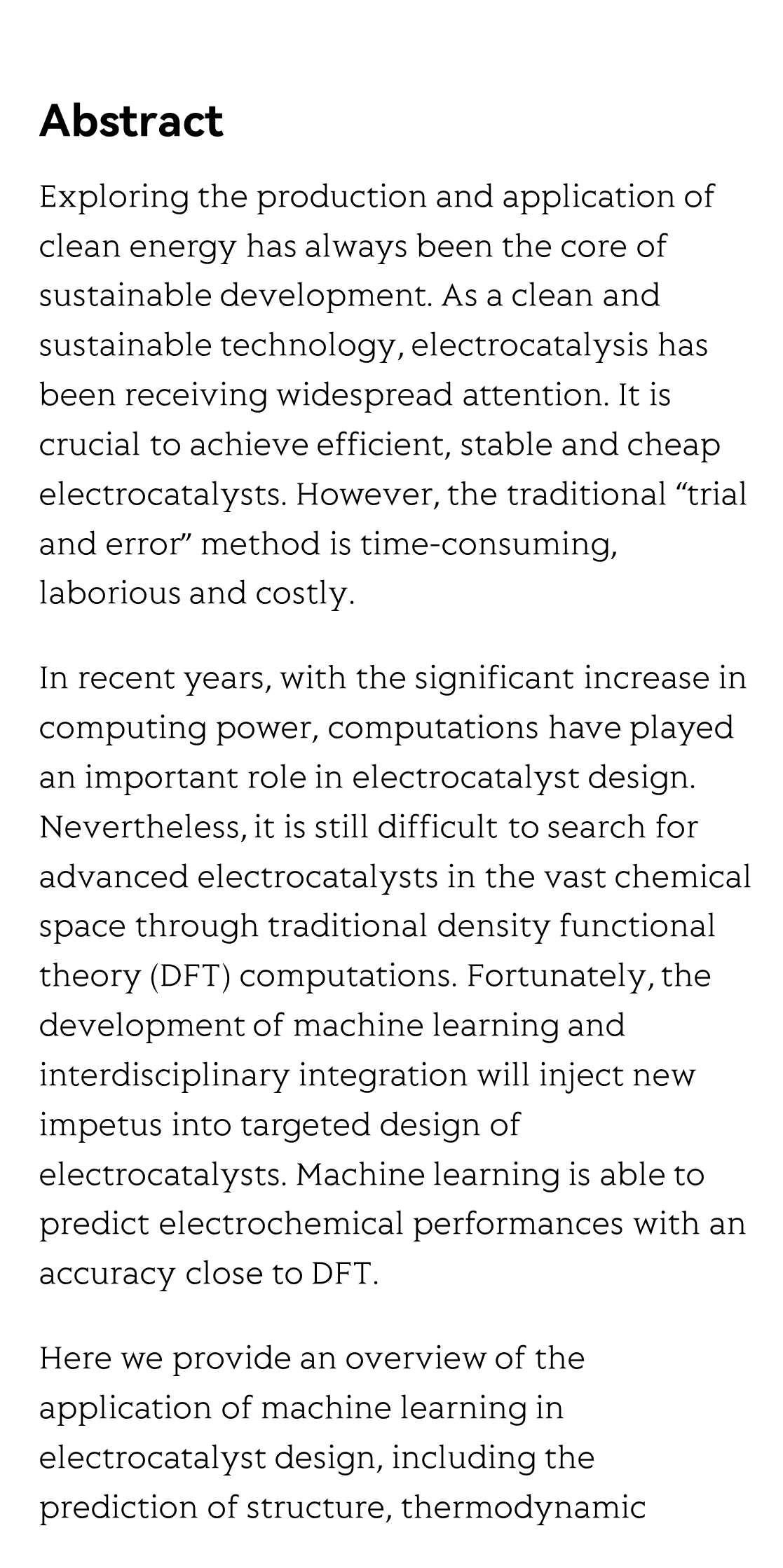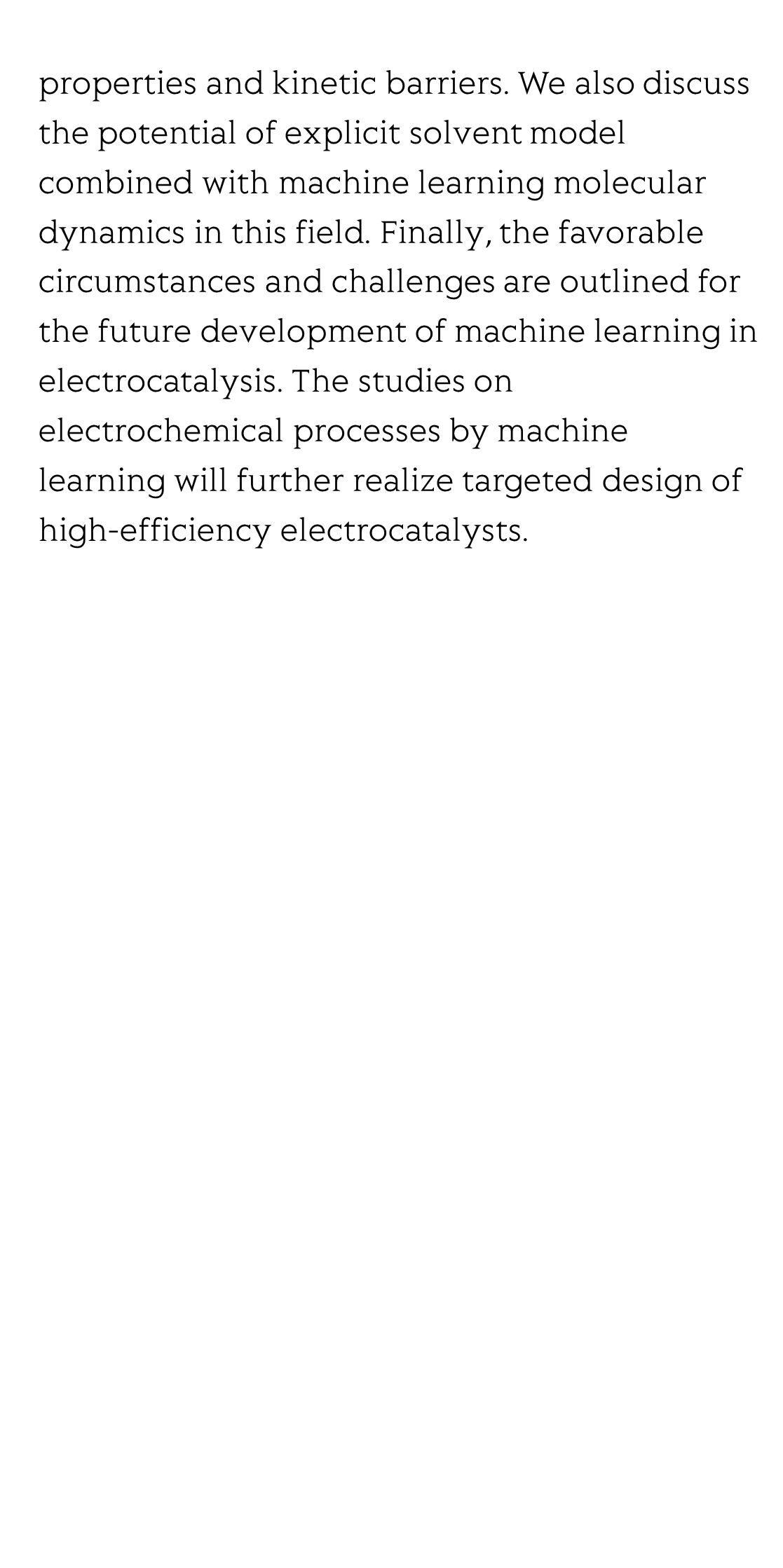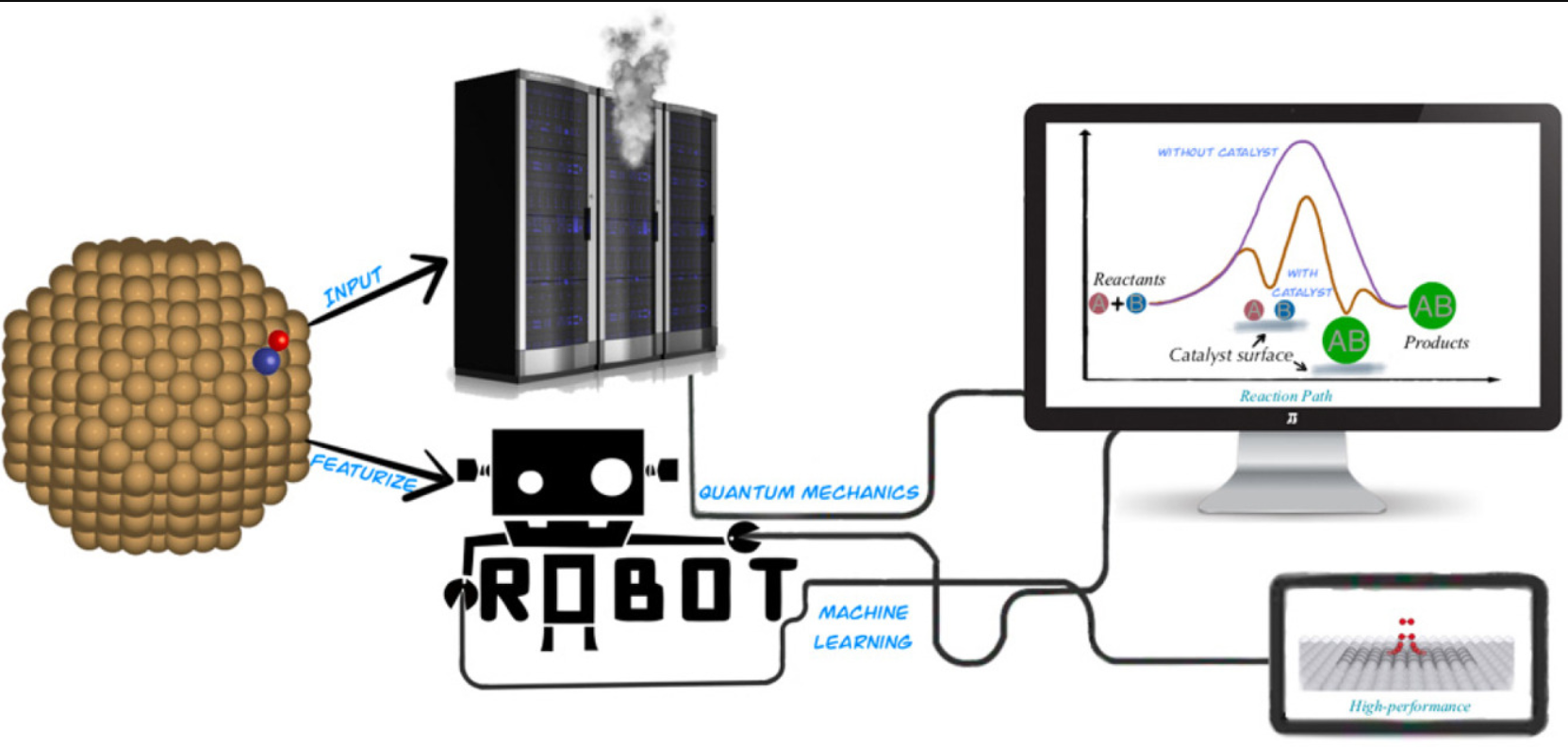(Peer-Reviewed) Targeted design of advanced electrocatalysts by machine learning
Letian Chen 陈乐添 ¹, Xu Zhang 张旭 ¹ ², An Chen 陈安 ¹, Sai Yao 姚赛 ¹, Xu Hu 胡绪 ¹, Zhen Zhou 周震 ¹ ²
¹ School of Materials Science and Engineering, Institute of New Energy Material Chemistry, Renewable Energy Conversion and Storage Center (ReCast), Key Laboratory of Advanced Energy Materials Chemistry (Ministry of Education), Nankai University, Tianjin 300350, China
中国 天津 南开大学材料科学与工程学院 新能源材料化学研究所 可再生能源能量转换与存储中心 先进能源材料化学教育部重点实验室
² Engineering Research Center of Advanced Functional Material, Manufacturing of Ministry of Education, School of Chemical Engineering, Zhengzhou University, Zhengzhou 450001, Henan, China
中国 河南 郑州 郑州大学化工学院 先进功能材料制造教育部工程研究中心
Abstract
Exploring the production and application of clean energy has always been the core of sustainable development. As a clean and sustainable technology, electrocatalysis has been receiving widespread attention. It is crucial to achieve efficient, stable and cheap electrocatalysts. However, the traditional “trial and error” method is time-consuming, laborious and costly.
In recent years, with the significant increase in computing power, computations have played an important role in electrocatalyst design. Nevertheless, it is still difficult to search for advanced electrocatalysts in the vast chemical space through traditional density functional theory (DFT) computations. Fortunately, the development of machine learning and interdisciplinary integration will inject new impetus into targeted design of electrocatalysts. Machine learning is able to predict electrochemical performances with an accuracy close to DFT.
Here we provide an overview of the application of machine learning in electrocatalyst design, including the prediction of structure, thermodynamic properties and kinetic barriers. We also discuss the potential of explicit solvent model combined with machine learning molecular dynamics in this field. Finally, the favorable circumstances and challenges are outlined for the future development of machine learning in electrocatalysis. The studies on electrochemical processes by machine learning will further realize targeted design of high-efficiency electrocatalysts.
A review on optical torques: from engineered light fields to objects
Tao He, Jingyao Zhang, Din Ping Tsai, Junxiao Zhou, Haiyang Huang, Weicheng Yi, Zeyong Wei Yan Zu, Qinghua Song, Zhanshan Wang, Cheng-Wei Qiu, Yuzhi Shi, Xinbin Cheng
Opto-Electronic Science
2025-11-25







